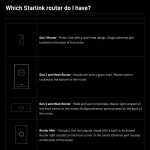Future of TV as Gov Predict 99.65% of UK to Have Superfast Broadband by 2030

The UK Government has today published an interesting new report examining the ‘Future of TV distribution‘, which among other things looks at the changing viewing habits and platform choices of modern TV viewers and then attempts to predict what will happen by 2040. The report also delves into the related issue of broadband ISP speeds and take-up.
As most people will already be aware from their own experiences, there has been somewhat of a radical shift in how we all access and view TV content over the past decade. Such content is now increasingly being viewed online, via services like Netflix, Amazon (Prime Video), NOW TV, Sky Glass, Virgin Media (Stream Box), YouTube and so forth. Due to this, there has been a decline in those using traditional Digital Terrestrial TV (DTT) signals.
Context for today’s environment
In 2023, 87% of UK households had an internet-enabled primary TV and approximately 18% used the internet exclusively as their primary way to watch television. 17% of UK households were dependent on digital terrestrial television for their TV viewing.
● Homes that were dependent on digital terrestrial television included 13,000 homes in areas without fixed-line broadband, 1.7 million homes without broadband access for reasons of affordability or choice, 2.2 million homes with broadband where the TV is unconnected to the internet and 0.7 million with an internet-connected TV whose viewing is more than 80% linear.
● In 2023, 90% of those without a broadband connection were aged over 55. They were more likely to identify as female and to live on their own. 80% of those with no broadband connection were within the C2DE socioeconomic bands. They were also more likely to live in the north of England, Wales, Scotland and Northern Ireland and have a disability.
The ‘Future of TV Distribution‘ report projects, based on existing market dynamics, that by 2040 95% of households will have installed the capability to watch TV over the internet. The results expect 71% to rely exclusively on internet delivery and 24% to be hybrid homes combining internet-delivered TV with digital terrestrial television or digital satellite.
Advertisement
Similarly, superfast broadband is predicted to reach at least 99.65% of homes by 2030. However, without intervention, by 2040, some 5% of homes (1.5 million) will still rely on digital terrestrial television via the airwaves. This could be a problem because the government is increasingly looking to phase-out terrestrial TV signals in favour of a model based more on internet delivery.
The difficulty today is that broadcasters (e.g. BBC, ITV etc.) are now paying to distribute their content both online and via traditional infrastructures like DTT with costs rising. The less time people spend on DTT, the less cost-effective per viewer it is, and this will only grow as DTT declines.
Just to be clear. The 1.5 million figure above reflects 0.4 million homes that will opt not to connect to broadband and 1.1 million homes that will have broadband, but which will not connect their TVs in order to use an internet TV service. “These viewers are more likely to identify as female and to live on their own. They are also more likely to live in the north of England, Scotland and Northern Ireland, be on low incomes and have a disability,” said the report.
The past and present governments have of course made no secret of their desire to deliver “nationwide” coverage of gigabit broadband by 2030 under their £5bn Project Gigabit programme, although in practice this is more likely to mean a figure of c.99% as some premises are simply too expensive to reach via fixed lines. Equally, not everybody will actually choose to use broadband.
Advertisement
Modelling by 3 Reasons and MTM forecasts that by 2030, 90% of UK homes will be fixed-line broadband subscribers, while a further 6.1% of UK homes will access broadband but only via wireless technologies. Over 99% will live in places covered by ultrafast broadband (100Mbps+), with ultrafast uptake at 83.3% of homes.
However, by 2040, broadband penetration is forecast to have reached at least 98.6%, and ultrafast coverage will have reached all of these homes. “We forecast that, by 2040, 92.6% of homes will have at least superfast fixed-line broadband (30Mbps or above) connection, and an additional 4.9% will have a Video-on-Demand capable mobile connection. While a small proportion of homes will still be without broadband, this is forecast to be a small minority at 1.4%.”
Key Findings from the Report
➤ Most households in the UK already have the capability to watch internet-delivered TV on their main TV set. In 2023, 87% of TV households had an internet-enabled primary TV set and within this cohort, approximately 18% already used the internet exclusively as their TV delivery mechanism on their primary set. In 2023, 17% of households relied on digital terrestrial television.
➤ We project, based on existing market dynamics, that by 2040 95% of households will have installed the capability to watch TV over the internet. We expect 71% to rely exclusively on internet delivery and 24% to be hybrid homes combining internet-delivered TV with digital terrestrial television or digital satellite. Superfast broadband will reach at least 99.65% of homes by 2030. However, without intervention, by 2040, 5% of homes (1.5 million) will still rely on digital terrestrial television.
➤ There are strong supply and demand drivers of internet-delivered TV. On the demand side, new and augmented services are available over the internet that are not available on broadcast TV, such as TV series or subscription services like Netflix, as well as innovations in user experiences (e.g. start over, playlists, personalisation, etc.) that can drive viewer engagement. One of the most significant supply side drivers is TV set sales and 3 Reasons anticipates that 100% of TV sets sold will be internet-capable by 2025.
➤ The 17% of households that rely on digital terrestrial television for their TV services in 2023 tend to have lower incomes, are more likely to be disabled, older, living alone, female, and geographically in the north of England, Wales, Scotland and Northern Ireland. Our analysis of the barriers to uptake of internet-delivered TV suggests that in 2040 the 5% of households that remain reliant on digital terrestrial television will continue to share these characteristics. Future research should focus on understanding these barriers and, if there is a case for switching off digital terrestrial television, explore potential interventions to support these households to switch to internet-delivered television.
➤ Technology for internet television delivery is mature and will have the capacity to manage all television viewing via the internet by 2040, but lack of control by service providers over the access network and in-home network may create problems including reliability. Internet-delivered television would require more reliable end-to-end networks to match current digital terrestrial television networks’ performance.
➤ The UK’s digital terrestrial television network continues to use transmission and encoding technology from the 1990s – DVB-T and MPEG2 – for most of its services. More efficient second-generation technology – DVB-T2 and MPEG4 – is used for Freeview High-Definition channels. In Europe, most countries are retaining digital terrestrial television because of its reliability and the need to maintain access for vulnerable audiences, and are replacing DVB-T and MPEG2 with newer, more efficient technologies to offer higher resolution and/or a greater choice of services.
➤ Digital terrestrial television broadcasting will remain the only primary service in its allocated UHF spectrum until at least 2031 in International Telecommunication Union Region 1 which includes the UK. However, there is increasing pressure to release spectrum currently used for digital terrestrial television for mobile services and the World Radio Conference will consider co-primary use of the spectrum by digital terrestrial television and mobile in 2031.
➤ If digital terrestrial television has a long-term future, the UK should prepare for the potential implications of co-primary use of the spectrum. This would require modernisation of the digital terrestrial television network to mitigate the risk of some loss of spectrum after 2031 and to continue using the available spectrum effectively. The simpler, lower-cost way of achieving this would be to broadcast all channels using DVB-T2 and MPEG4. This technology was introduced for Freeview HD broadcasts in 2009 and most TV sets sold over the last 15 years are already compatible. By giving sufficient advance notice, all households could be ready well before 2031.
➤ Current research suggests digital terrestrial television results in lower emissions than internet-delivered TV, but lack of data on the impact of devices in the home including their embodied carbon makes it difficult to draw a comprehensive comparison. In any case, by 2040, as 5% of households will be reliant on digital terrestrial television without intervention and 24% of households will be hybrid viewers, watching both digital terrestrial and internet delivered television, the impact on emissions of continuing both means of distribution should be considered.
At present the UK Government have already committed to the future of DTT until 2034, which is in keeping with how some broadcasters have warned that existing DTT infrastructure is “unlikely to be commercially attractive after the mid-2030s“ (here); hence why it’s wise to be doing this research today and preparing a plan for the reality of tomorrow.
On this subject, Ofcom has previously and correctly noted that a speed of 10Mbps can be sufficient for both several Standard Definition (SD) and a single stream of High Definition (HD) viewing, although this will inevitably improve as new video standards emerge and compression improves (as it always does, alongside faster computer processors).
Advertisement
The very latest of cutting-edge video compression technologies can already squeeze a full HD video stream down to work over an average connection speed of 2.5Mbps (compared with about 5-6Mbps today) and rising to 12.5Mbps for 4K (UltraHD) quality. But this does tend to require a more powerful CPU and broadcasters often prefer kit with a wider degree of support.
In any case, the full report is worth a read, although it is 200 pages long and, in that sense, you have to have quite a big interest in all this to warrant going deeper.
Mark is a professional technology writer, IT consultant and computer engineer from Dorset (England), he also founded ISPreview in 1999 and enjoys analysing the latest telecoms and broadband developments. Find me on X (Twitter), Mastodon, Facebook, BlueSky, Threads.net and Linkedin.
« Vodafone UK Offer 6 Months Half Price on Unlimited Data SIM Plans






















































I think if freely we’re able to make a standalone box for about £50 it would aid the transition greatly
Yes an app would be good, but a box that can be a drop in replacement for Freeview would aid those wanting to retain a Freeview like experience. This would doubtless include many vulnerable folk
The problem I see now is that there is no single, enforced universal standard for internet based live TV broadcast like there is with DVB-T/C/S.
People are buying ‘Smart’ TVs thinking they don’t need a terrestrial antenna or satellite dish and end up disappointed that they can’t simply push ‘1’ for BBC One or ‘3’ for ITV.
That is what needs sorting out, like the DVB standard. Let the broadcasters keep their data harvesting on-demand services. Live TV needs to be as simple as connect to network and GO with a maximum level of complication being supplying proof of valid TV license… for BBC channels only.
Actually that has already been sorted. ‘Freely’ is an internet based freeview service already in some Toshiba and Hisense Tvs’ It will probably be in all smart Tvs by this time next year – have to buy a new Tv though.
Isn’t that what Freely is for? Standard for UK channels like BBC/ITV/C4/C5 etc. Now if only Freely was more freely available and not just a few handpicked televisions but make it available on Firestick/AppleTV etc
@K, but Freely is only available on certain brands of TV sets, Hisense and those made by Vestel. Vestel make TV sets for other companies, but they at the lower end of the market. Sets aimed at the higher price market like Samsung don’t have Freely and I don’t think Samsung has any plans for it.
Freely may not even take off, if not enough TV manufactures bothers with it then it will die. The other thing is that people who buy a new TV now are not going to buy another one anytime soon.
I have a Hisense Roku TV, which will be five years old in February next year. That is scary. I am hoping it will last for another 5 years. People are buying new sets now, if they last for ten years, then that is ten years with no Freely.
I am not bothered, I don’t watch normal TV, no Tv licence. I watch subscription and some catch up channels.
I think Freely need to up the game to get into more people’s houses and unless there is a good reason for someone not to plug in an antenna, there is at this moment, no real need for freely
I know of Freely, but I’m unfamiliar with it’s operation. Is it “Push 1 for BBC One, 3 for ITV, etc”? I do tech support call-outs for TVs and you’ll be surprised how many people don’t refer to channels by name but rather by number. “I can’t get channel 42”. Plays havoc with some when channels change number. Does Freely require a (free)account before it can be used? Will Freely be ‘account-walled’ on TVs that require an additional account to use ANY internet functions like FireTVs or Roku TVs or any newer Samsungs?
@Hojo Norem. using Freely will be like using Freeview, you have a guide like Freeview and you will be able to just press the channel numbers. There is no account. The channels are pretty limited at the moment. you can go back in time, but it is like Freeview play where it use the app belonging to the broadcaster. So if you go back in time on a BBC channel it will use iplayer and you must have an account for that.
but for normal use it is like using Freeview.
The one thing people will lose is the ability to record.
the link below is a early review.
https://www.techadvisor.com/article/2315201/freely-tv-hands-on.html
It is early days, it will be updated, and I presume features may be added, it depends if it lasts. Manufactures don’t want to be left in the lurch like they were with You View, so some may take a bit of time to integrate it into their TV or may not at all. i am not a fan of Samsung TVs, but they do sell a lot of them and if they don’t get on board and others, then Freely will not survive.
Ad47:
Actually it is supported across the industry. Brands include Bush, Hisense, Toshiba and Panasonic so far with more to come.. The reason why people dont know about freely is its just a recent technology.
I have a Freely TV, actually a Panasonic, it works great, really simple to use, push button 1 and BBC1 comes on etc. I live in an area with FTTP broadband but terrible terrestrial TV signal, so it made complete sense to us, buying a new TV was actually cheaper than getting our aerial installation fixed.
When FTTP is universal I don’t see any reason to continue with terrestrial broadcasting, it will be obsolete.
Can’t wait until someone comes along and scraps the BBC/TV tax, it is an unenforceable tax for something that is a net negative to society. They completely make zero efforts to be informative and unbiased and instead they are just biased and misleading, to the absurd point of asking Boris Johnson if he was okay with leaving his daughter in Mar a Lago, as if it was the Epstein Island. The faces of the lot on the election coverage was glorious though, completely shows how disconnected they are from normal people
The future is the free market with choice through the multiple free and paid online platforms
No. The BBC is the only news source that comes anywhere near being balanced, and many people are more than happy to pay for it.
I suspect you think GB News is unbiased. The irony of talking about disconnection from normal people.
There are so many examples of the BBC being biased that I could write an entire book. Starting from the fact that they cover for the most hideous type of criminals. Another one, in UK election they had an entirely hand picked audience to roast Nigel Farage, of which the first 2 question askers were prominent labour activists
Also to dispel your strawman, I am not advocating for abolishing the BBC (though that would be amazing for society), I’m just saying that is completely not fair for people to be forced to pay for something they dont want. Want to pay the BBC? go ahead but others may prefer to pay Netflix instead
GB News can be both. I could point you towards some of their Guardian pundits like Benjamin Butterworth that you probably agree with on everything but probably would still incorrectly call him unbiased
Lol here’s how biased the BBC is, to the point of crying because the people didn’t vote for who they wanted
https://www.gbnews.com/membership/exclusive-staggering-bbc-leaked-messages-show-staff-in-meltdown-at-trump-win-the-annoying-orange-won
Really, the BBC is the only news source that isn’t biased? Oh dear, how wrong and blinded are some people.
The mainstream media is governed by OFCOM who controls what they can and can not say, OFCOM is a government organisation so that should tell you all you need to know!
I don’t pay it and have not for over 9 years, maybe longer. I don’t watch live TV and I don’t use Iplayer, and I don’t miss it. If you are so against it then you would do the same thing
I do get the intimidating letters and threats of a visit, every month or so, still waiting for them to visit, so I can tell them to go away and close the door on them. The paper is good for compost 🙂 their money, not mine,
@Gary: That’s a red herring. Individuals are rightly free to hold whatever opinions they please, the issue of ‘due impartiality’ is one for the news output itself.
Obviously foreign affairs is a far more complex issue regardless, the bothsidesism and/or no view expressed whatsoever that ‘due impartiality’ is so often incorrectly equated to cannot be applied there.
If for example the BBC were to cover the negative consequences to the British economy of a Trump lead US trade war, would they be expected to present an argument that blanket 10-100% tariffs (the figure Trump cites changes with his mood) on imports of British goods into the USA would be beneficial to the British economy? [answer is rightly no].
GB News who you cited is also covered by OFCOM impartially rules, yet demonstrably routinely flouts them, hence the fines for ‘serious and repeated’ breaches.
There are issues with BBC impartiality [most notably false balance / unwarranted bothsideism], however I don’t believe the BBC has ever received such a fine.
Gary, article from GB News. Rest my case. A backstreet news outlet with vested interests operating an amateur setup and trying to look like they are worthy by constantly blasting more mature networks. Zero impartiality on their network for a start and many OfCom fines.
Staff can have their own views and they are not presenters in front of an audience.
“BBC is impartial, also BBC is allowed to not be impartial”
“I disagree with GBN so it deserves all fines it can get!!!”
The cold hard fact is, as exactly pointed out by Phil, Ofcom does not even allow complaints about the BBC. Not even when they say the exact same things that get GBN fines. One example is the Laurence Fox incident where the same expressions were used by the BBC
Anyway all of this is great because it shows how desperate the propaganda machine is. Everyone is wealthier and gets much more reach by going independent. The Lotus Eaters now have a huge studio with record high membership. Calvin Harris even met with Donald Trump. Corporate state controlled media is on its deathbed and good riddance
Attn Harry:
Invented quotes do not aid your arguments.
Ofcom have a clear procedure on how it deals with BBC complaints and publishes records of complaints it doesn’t investigate.
Ofcom’s fine £100k fine of GB News was due to Sunak’s “Peoples Forum” prior to the General Election, not the “Laurence Fox incident”.
“the propaganda machine” & “Corporate state controlled media”… carry on with that and you’ll score a full house on Buzzword Bingo.
A random podcast of quite fringe commentators, ‘National Conservatives’ and apparently Carl Benjamin aka Sargon of Akkad [as at-least a regular guest]. As delightful as that sounds, I think I’ll stick with moderate content.
If anything this proves you have an agenda, Sunak being roasted and berrated at is somehow biased, however Yvette Cooper literally being interviewed by her husband is perfectly fine!!
I agree with the death of the rotten MSM, bring on independent media
Can see why you love GB News Gary. You are their target audience.
I mean you sat there typing away, and bended the truth about Yvette Cooper and her husband interviewing that which happened on a commercial television channel called ITV, and not as you pretended, on BBC.
But don’t let facts get in way of your personal agenda.
If the standards for breaking impartiality is the impact in the British economy then it makes sense…. Actually it does not since legacy media has been constantly pushing for Labour and now that after the worst budget in British history is out and gilt prices are worse than during Liz Truss not a single peep on “crashed economy”
But hey guys conservatism is the “extreme” position, not the media that pushes for this radical left establishment of poverty
S&P is up 5% last week while FTSE is down 2%. There has never been any better time to long term invest on US stocks and ditch UK ones… Especially after capital gains tax robbery hikes
Very interesting article. Thank you ISPreview
I’m torn on this because I can see how moving to an all-IP system makes sense and it would allow broadcasters to do things like shift to 4K without it having to come with hardware upgrades of tuners, but I do see some value to maintaining OTA broadcasts for getting information out to people in emergency situations. Relying on mobile phones to do everything in the event of widespread power failures or network outages/attacks seems too risky.
Terrestrial will go; its just timing, The terrestrial broadcasters have limited funds and the streaming giants do not have transmission costs like they do. This is really the main driver, ignoring the government’s own requirement for the DTT frequencies for mobile use.
The thing with Freely, is that it can be adapted for DRM for subscription or PPV events in the future, thus removal of the license fee can actually be facilitated by this platform should this be required, albeit with a service name change. They cannot do this on DVB/DVB-T2 without significant cost and viewer disruption/cost.
Can’t see satellite lasting until 2040. Sky have only extended their contract with Astra to 2030 and it’s pretty obvious they would like to have moved to streaming only by then. As Martin said above it would be helpful if Freely made a set top box to use with existing TV’s as has happened when we went from analogue to Freeview and then on to Freeview HD.
This is supposed to be on roadmap but a freely app isn’t.
Subscription is fair as long as delivery is still available over the air, as otherwise for some people the amount saved by abolishing the TV licence will be more than outweighed by the cost of a broadband connection. There used to be a subscription service over Freeview, TopUpTV I think it was called, so why not reintroduce such a service?
Licence funds radio. Radio 4 is worth the fee alone
That’s fine for you. I don’t listen to it though so I’m not paying towards its content
I listen to a couple of things on Radio, but worth £160 a year? Nope, even the BBC itself is not worth that.
Why does Freely require a new TV? Couldn’t it be made into an app?
Or a cheap set top box.
They could make it into an app but don’t want to. Why make it easier for cracking of DRM with an app…Controlling the middleware means control of suitable hardware too so that reputation of service isn’t affected by just poor kit that is not up to spec.
I have a vast collection of Blu-ray discs of films stored by director from Chaplin to Fennel which I copy from the only BRD video recorder/burner from Panasonic. I don’t subscribe to any streamers because they don’t allow recording outside their ecosystem. I will resist digital-only until the technology is allowed to overcome the content-provider’s & hardware-manufacturer’s reluctance to relinquish control.
I think the valuable things from the BBC are documentaries, educational content and radio, but these keep being the target of cuts.
I would support removing the BBC specific license, but still keep some kind of government funded content, which is funded out of general taxation rather than dated and regressive per household billing. This funding would be used to keep radio services going and fund educational TV content.
This is incredibly interesting. IP delivery is inevitable, however, what is also evident is that some form of basic DVB-T2 backup service will need to remain not only for the small but not insignificant percentage of the population who will remain unable to receive IPTV but also in the event of an broadband outage or other emergency so people can still receive the standard 1 – 5, some news channels and any emergency broadcast (not sure if we have such a thing beyond the mobile alerts). Clearly it makes sense to migrate to DVB-T2 distribution for broadcast couple this with standard national frequencies for each channel and this will free up the greatest capacity for future mobile services. Migrating to DVB-T2 will of course come at some cost to the broadcaster and anyone with a TV over about 15 years old who will need a set top box or new TV.
Whilst I haven’t finished the report from what I have read so far it is incredibly thorough, not that one should expect anything less when Exeter and Leeds Unis work together. I hope the government doesn’t drag its heels on this, had the DVB-T2 upgrade been started sooner ensuring everyone had complaint hardware would have been easier. And, the frequency standardisation could be achieved with greater speed.
Beyond this, it is clear that some members of our community are in need of far more support with regards to digital inclusivity, from ensuring that ISPs are required to have social tariffs on their main sales pages as an option to supporting the elderly to get online through assistance programs and technical help from say Age UK etc. The fact we don’t see broadband as an essential service and all properties should be required to be connected as we do with water and electricity is also maddening. It goes without saying that the practicalities of at least 30Mbps being available everywhere are not so easy, it’s very difficult and costly for some remote properties.
This move to IPTV is clearly highlighting that successive governments going all the way back to the early 2000s, have let sections of our communities slip through the net when it comes to digital inclusion. Something which is deeply troubling when so many services are no primarily online. Hopefully this will give them the push to help the last few % get connected.
Most of the UK can already get Broadband, The existing terrestrial network is nearing end of life and would be very expensive to replace even if possible. Probably Free sat will go on for quite a while. Whether Freely will take off I don’t know, It carries a limited number of channels at present and a big issue with it is the inability to record
I think before long some of the terrestrial channels will go, The market is moving to IP and economic of broadcasting on both does not work